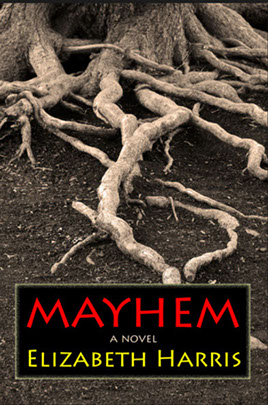
Connecting Texas books and writers with those who most want to discover them

TRAVELING?
TOP TEXAS
BOOKISH DESTINATIONS
Search our archives:

Lone Star Book Reviews
By Michelle Newby, NBCC
Contributing Editor
 Michelle Newby is contributing editor at Lone Star Literary Life, reviewer for Foreword Reviews, freelance writer, member of the National Book Critics Circle, and blogger at www.TexasBookLover.com. Her reviews appear or are forthcoming in Pleiades Magazine, Rain Taxi, World Literature Today, South85 Journal, The Review Review, Concho River Review, Monkeybicycle, Mosaic Literary Magazine, Atticus Review, and The Collagist.
Michelle Newby is contributing editor at Lone Star Literary Life, reviewer for Foreword Reviews, freelance writer, member of the National Book Critics Circle, and blogger at www.TexasBookLover.com. Her reviews appear or are forthcoming in Pleiades Magazine, Rain Taxi, World Literature Today, South85 Journal, The Review Review, Concho River Review, Monkeybicycle, Mosaic Literary Magazine, Atticus Review, and The Collagist.
Lone Star Book Reviews
of Texas books appear weekly
at LoneStarLiterary.com

Elizabeth Harris is a native Texan who grew up in Ft. Worth and in Pittsburgh, PA. She won the John Simmons Prize, awarded by University of Iowa Press, for her first book, The Ant Generator, a collection of stories praised for their “sense of wonder and comedy” and “acid-etched existentialism.” Those and uncollected stories appeared in Antioch Review, Epoch, Chicago Review, North American Review, Shenandoah, and other magazines, and have been anthologized in New Stories from the South, Best of Wind, The Iowa Award, and Literary Austin. Mayhem will be her second book. She taught fiction writing and modern literature for a number of years at the University of Texas in Austin, where she and her husband live.
Fiction
Elizabeth Harris
Mayhem: Three Lives of a Woman
Arlington, VA: Gival Press
Paperback, 9781940724003; ebook, 9781940724010
Page count and price TBA
October 5, 2015
 Mayhem: Three Lives of a Woman by Elizabeth Harris, winner of the 2014 Gival Press Novel Award, is unconventional historical fiction spanning the years from the 1920s to the 1950s in a fictional Central Texas settled by German immigrants in the nineteenth century. Alternating between delighting you with pastoral descriptions of the Hill Country, lulling you with sepia-toned portraits of the good ol’ days, and smacking you in the face with the gender, race, and class conventions (convictions? crimes?) of the period, Mayhem is a surprising blend of plot-driven crime story, character study, and social critique.
Mayhem: Three Lives of a Woman by Elizabeth Harris, winner of the 2014 Gival Press Novel Award, is unconventional historical fiction spanning the years from the 1920s to the 1950s in a fictional Central Texas settled by German immigrants in the nineteenth century. Alternating between delighting you with pastoral descriptions of the Hill Country, lulling you with sepia-toned portraits of the good ol’ days, and smacking you in the face with the gender, race, and class conventions (convictions? crimes?) of the period, Mayhem is a surprising blend of plot-driven crime story, character study, and social critique.
The story begins as Evelyn, chief witness and “adulterous” (define, please) wife of Les Gant, arrives at the criminal trial of her husband and his brother Marvin. The charge? Castrating a neighbor. Yep, you heard me. The narrator notes it’s “[t]he kind of crime an angry person says he or she would like to commit against some particular man so much more often than anybody ever does it that, in the allegation of its having been done, language seems to have been released to become an actor in the world.” But this horror is not the point of Mayhem; the horror is why? And the point is what next? The answers to why are at once devastating and prosaic. The answers to what next involve an approximation of justice that isn’t altogether satisfying. But how could it be?
Fittingly, I read Mayhem on International Women’s Day. I was immediately enchanted by the sensibility of the nameless, omniscient narrator and tour guide. Her sardonic humor is welcome in this devastating story. “Iron Rock society comprises not only the living but several generations of dead, and these, although incapable of opinion, are not so dead as in some places.” Biting commentary takes aim at the social hierarchies and pretensions of the Old South, toted to the frontier along with more perishable goods.
A place where, as the white men’s law scrabbled for a hold, it was still a day’s ride away…. So the suspects of crimes might be punished by the victims instead, or their survivors, in a tradition of personal and approximate justice we now call barbaric. The arrivals of telegraph and railroad might have changed the need for that but only in one understanding of need.
Elizabeth Harris’s word choices are impeccable. This is how she introduces us to Evelyn:
She is … the trial’s most intriguing spectacle, the cause of it all, the modest, obedient, well regarded woman taken in adultery. People think of her in that phrase, out of its context except as it explains her being sheltered by Sister and Brother White of Iron Rock First Baptist, a charitable act possible because no Baptists are parties to the trial.
You’ll think you know where Mayhem is headed and you will want to holler and point and grab someone by the shoulders and just shake them. When you decide you know where this is going, Evelyn hijacks the plot. It’s not what you think it is – it’s better.
* * * * *

WHERE IN TEXAS?

BOOKISH TEXAS
Subscribe to our weekly e-newsletter to read Michelle Newby's Texas Bookish Events from around the state.

![]()
![]() LONE STAR LITERARY LIFE copyright © 2015–18 Paragraph Ranch LLC • All rights reserved • CONTACT US
LONE STAR LITERARY LIFE copyright © 2015–18 Paragraph Ranch LLC • All rights reserved • CONTACT US
